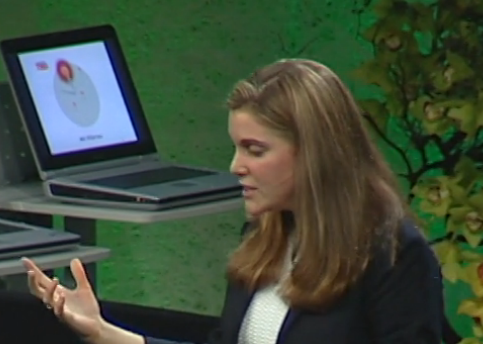So I decided to ask why. At first -- the first thing I did was I emailed some professors who specialized in skeletal muscle physiology,
因此,我決定打破沙鍋問到底。我做的第一件事是,發電子郵件給一些研究骨骼肌的教授。
and pretty much said, "Hey, it seems like cancer doesn't really go to skeletal muscle.
里面寫道,“嘿,看來癌癥確實不會轉移到骨骼肌。
Is there a reason for this? And a lot of the replies I got were that muscle is terminally differentiated tissue.
這是為什么呢?我得到的答復大部分都是這樣的,肌肉是終末分化組織。
Meaning that you have muscle cells, but they're not dividing, so it doesn't seem like a good target for cancer to hijack.
這意味著你有肌肉細胞,但他們不會分裂,所以對癌癥來說,它并不是一個好的攻擊對象。
But then again, this fact that the metastases didn't go to skeletal muscle made that seem unlikely.
但話又說回來,癌癥沒有轉移到骨骼肌這一點使得這個解釋變得不是那么可信。
And furthermore, that nervous tissue -- brain -- gets cancer, and brain cells are also terminally differentiated.
再者,神經組織——腦——也會得癌癥,而腦細胞也是終末分化組織。
So I decided to ask why. And here's some of, I guess, my hypotheses that I'll be starting to investigate this May at the Sylvester Cancer Institute in Miami.
因此,我決定問為什么。這里還有一些我的假設,今年5月,我將在邁阿密的西爾維斯特癌癥研究所開始這項研究。
And I guess I'll keep investigating until I get the answers.
而且我想我會繼續調查,直到我得到答案。
But I know that in science, once you get the answers, inevitably you're going to have more questions.
但我知道,在科學研究中,一旦你得到了答案,隨之而來的是更多需要解答的問題。

So I guess you could say that I'll probably be doing this for the rest of my life.
所以你可能猜到,我很可能一生都會投身于科學研究中。
So some of my hypotheses are that when you first think about skeletal muscle, there's a lot of blood vessels going to skeletal muscle.
我的假設是,當談到骨骼肌你首先想到的是,有很多的血管通向骨骼肌。
And the first thing that makes me think is that blood vessels are like highways for the tumor cells. Tumor cells can travel through the blood vessels.
我思考的第一件事是,血管像是腫瘤細胞的公路。腫瘤細胞能夠通過血管四處游弋。
And you think, the more highways there are in a tissue, the more likely it is to get cancer or to get metastases.
想一想,一個組織里有越多的”公路“,患癌癥,或者癌癥轉移的的可能就越大。
So first of all I thought, you know, "Wouldn't it be favorable to cancer getting to skeletal muscle?"
所以我首先想到的是,“骨骼肌里這么多的血管,不是正中癌癥下懷么?
And as well, cancer tumors require a process called angiogenesis, which is really, the tumor recruits the blood vessels to itself to supply itself with nutrients so it can grow.
“同時,癌癥腫瘤需要一個被稱為血管生成的過程,這是真的,腫瘤利用血管為自己服務,從中汲取營養,以便繼續增長。
Without angiogenesis, the tumor remains the size of a pinpoint and it's not harmful.
如果沒有血管生成過程,腫瘤會維持在很小的范圍內,而不會形成威脅。
So angiogenesis is really a central process to the pathogenesis of cancer.
因此,血管生成可以稱得上是癌癥的發病機制的核心進程。











